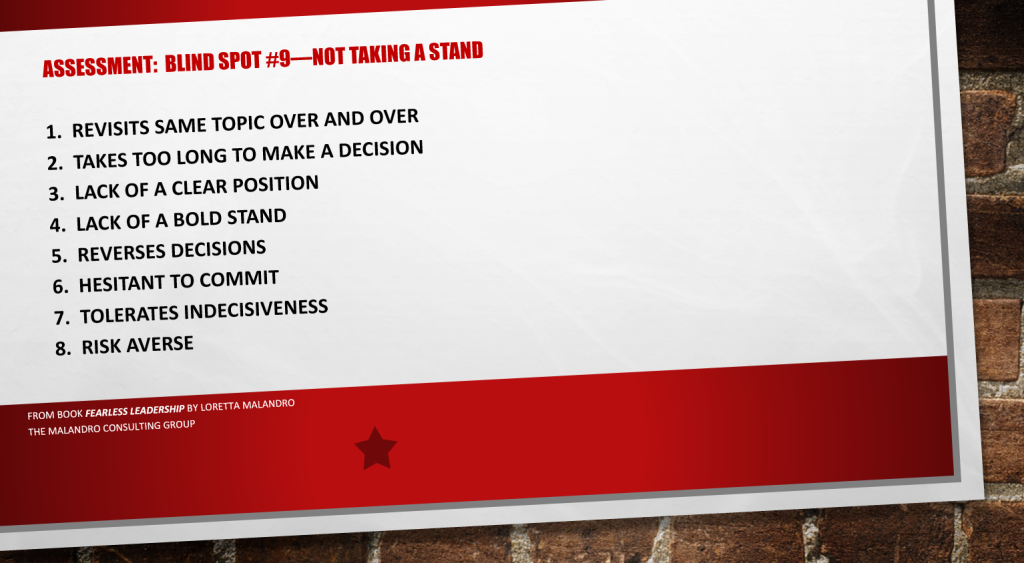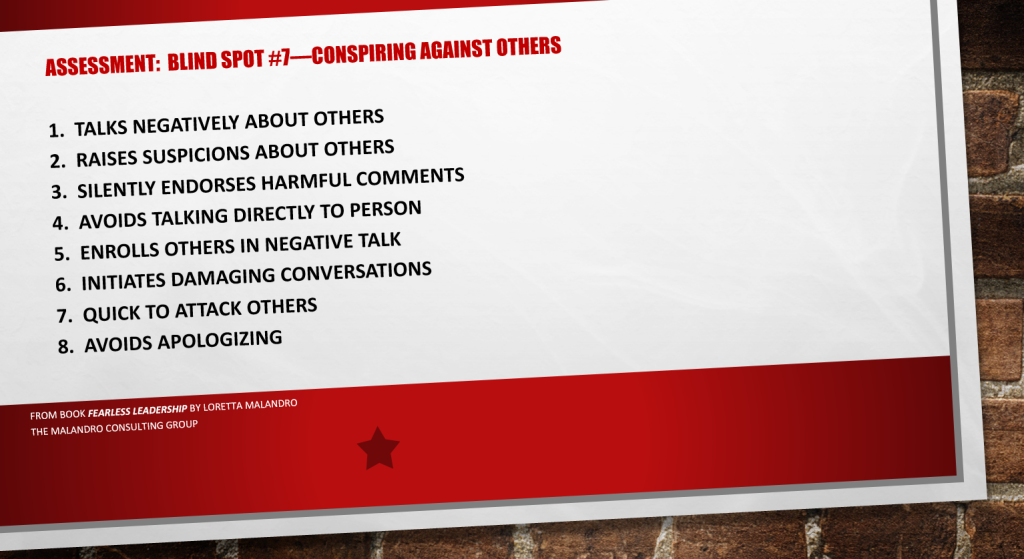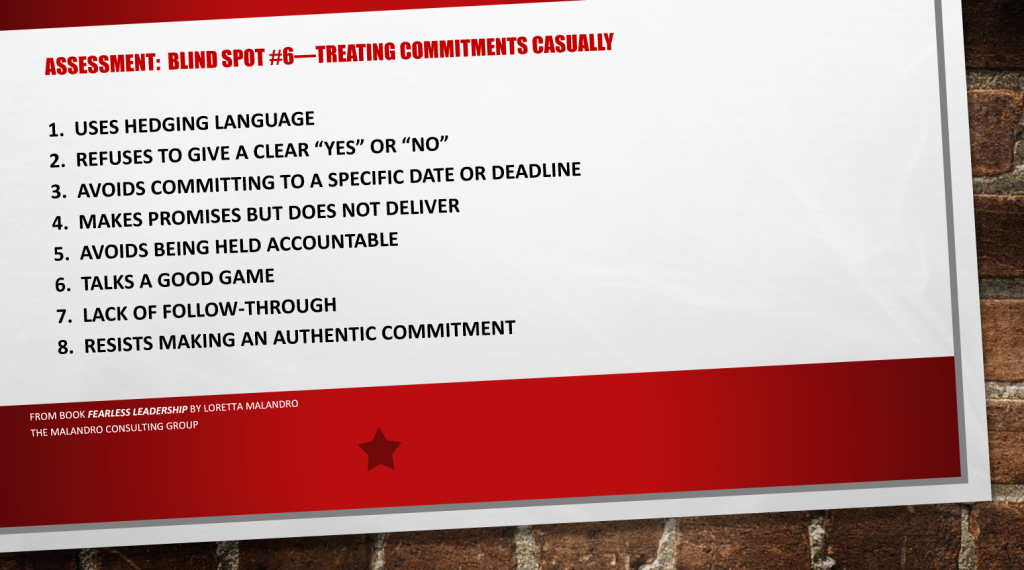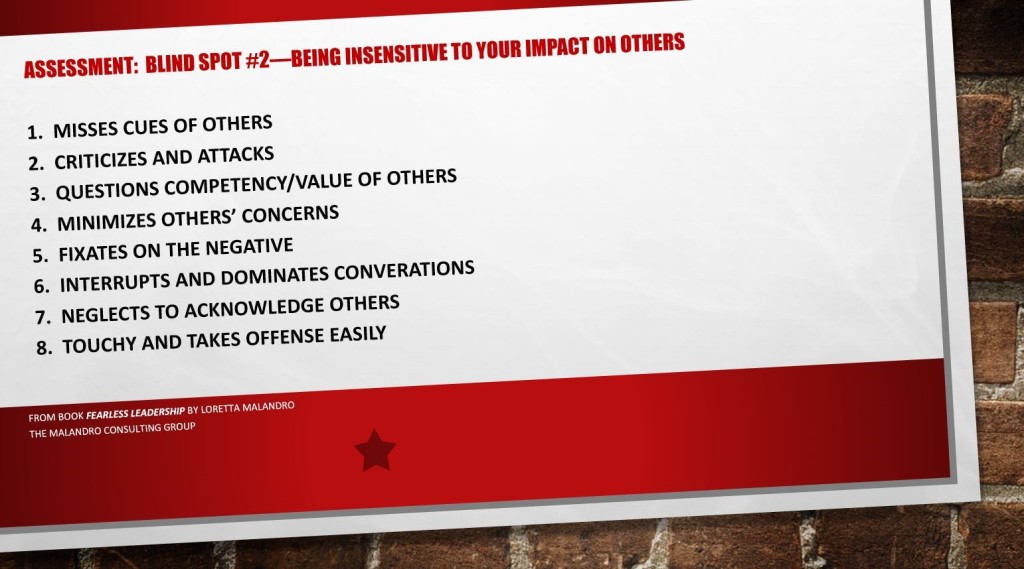
This is the ninth of 10 blind spots that may be sabotaging your effectiveness.
Blind Spot #9—Not Taking a Stand. What it Means.
Do you avoid making decisions, postpone them, or make decisions that are unclear? Does this apply to you? If it does, you don’t take a stand for what you want and you’re letting others down.
The Downside of Sitting on the Fence
Do you delay decisions much too long? Or, do you avoid making them altogether? If your answer is “yes”, your behavior drives everyone crazy. Your lack of decisiveness cripples your coworkers and team. No one can move forward. To others, you’re a fence-sitter, someone who stares off into the clouds contemplating a decision without regard to the consequences of not making one.
Your indecisive behavior is a sure-fire recipe for your own ineffectiveness. Others will lose their enthusiasm when you don’t take a stand. They will disengage and look for someone who is strong and decisive. Your name will be on the short list of people to avoid.
Do YOU Avoid Taking a Stand?
Ask others to assess your behavior using the scale of 1 (rarely) to 5 (frequently).
How do you rate?
32 to 40: Your indecisiveness is not an attractive or useful quality. People may like you, but they won’t follow you.
17 to 31: You’re inconsistent. Make a decision and take a bold stand. This is what people want from you.
8 to 16: Others appreciate your willingness to go out on the skinny branches. Keep being decisive as long as your decisions forward the action.
Want More?
Read the book Fearless Leadership and the anti-blogs on the 10 Blind Spots.









